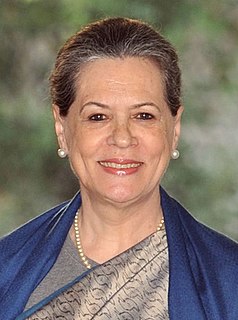A Quote by Sonia Gandhi
An economy growing at 7 percent per year, can and must find the resources to improve the lives of its millions of poor.
Related Quotes
I don't want there to be this separation between the rich and poor. I may be part of the three percent because I've been fortunate and done well for myself, but I will never forget about the 97 percent. That was me growing up. I was so poor I dreamt about being just 'regular poor,' not 'poor, poor.'
In 1994, Estonia became the first European country to adopt a flat tax, and its 26 percent flat tax dramatically energized what had been a faltering economy. Before adopting the flat tax, the Estonian economy was literally shrinking. In the eight years after 1994, Estonia experienced real economic growth - averaging 5.2 percent per year.
When you feel discouraged or simply lazy, as is bound to happen sometimes, remember the millions of people in the world who have not had your privilege. Remember the poor and obscure lives of those countless millions who suffer from every sort of deprivation and frequently find themselves the unwilling victim of wars, and a variety of cruelties, perpetuated by man on man. Is it not significant that the first bid for self realization, among the poor and downtrodden, is to assert their right to education?

































